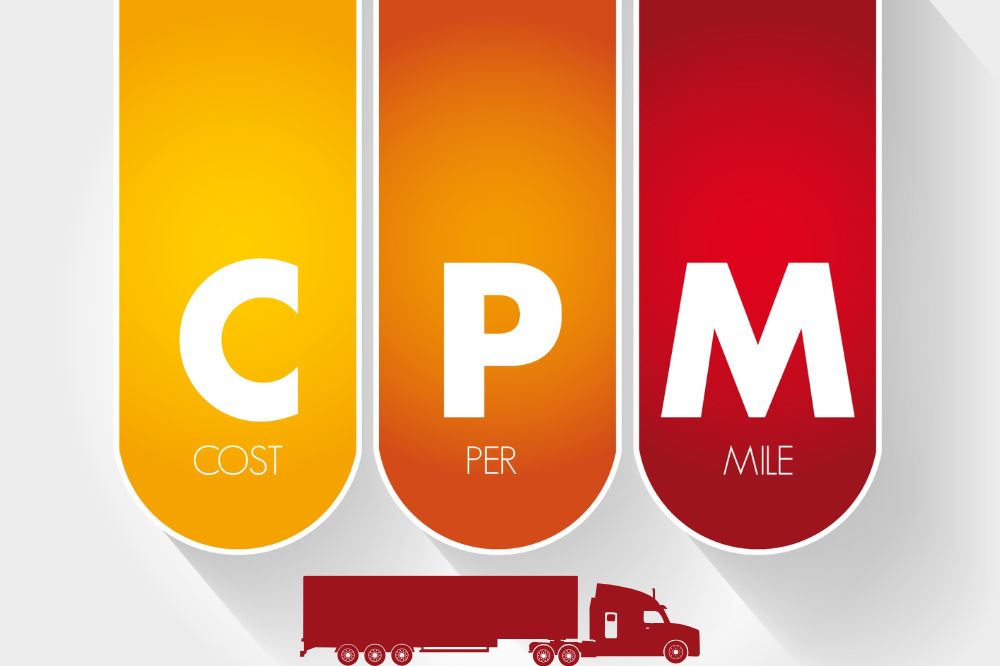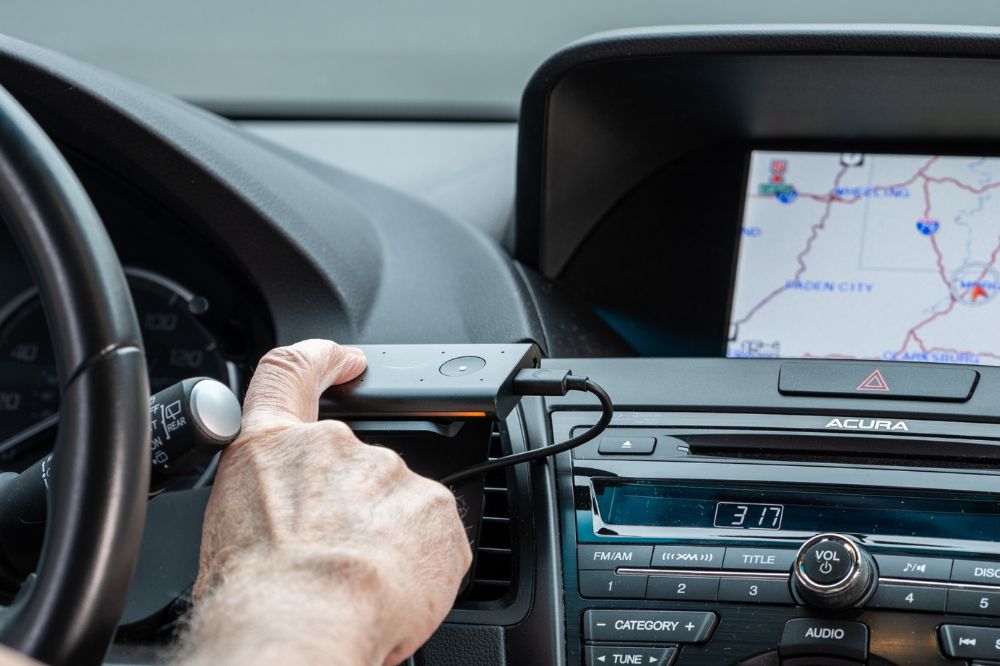
We’ve put together this guide to truck driver tax deductions because one of the most frustrating parts of operating your trucking business is handing over a good portion of your revenue to the IRS every tax year. While you can’t avoid taxes as a trucker, you can maximize your truck driver tax deductions to lower your tax bill.
This is one of the most effective ways to keep more money in your business.
Ready to optimize your tax return? Read on.
What Are Truck Driver Tax Deductions?
Truck driver tax deductions are various tax-deductible costs you can claim to lower your obligations with the IRS.
As a truck driver, you can claim many tax deductions for work-related expenses. Some of the most common deductions include fuel, maintenance, tolls, licensing fees, and logbooks. If you’re an owner-operator, you can also deduct expenses like lease payments, insurance, depreciation on your truck, and even office supplies.
Meals and lodging while on the road are partially deductible, but you must keep records of these expenses.
As long as they’re job-related expenses, there are plenty of deductible business expenses that truck drivers can utilize. This is why it’s so important to keep receipts and clear financial records while on the road.
To help with truck driver tax deductions, use per diem rates for meals to simplify claims if you’re eligible. Make sure your expenses are directly related to your trucking work and aren’t reimbursed by your employer. Tax-deductible expenses have to be actual expenses related to your business operations.
Importantly, consult a tax professional for help, as deductions vary based on whether you’re self-employed or a company driver.

Understanding Truck Driver Tax Deductions vs. Credits
Before you can make the most of truck driver tax deductions, you need to understand the difference between truck driver tax deductions and tax credits.
Tax deductions lower your taxable income, meaning you pay less tax because you’re taxed on a smaller amount of money. For example, if you claim $5,000 in deductions and make $50,000, you’ll only be taxed on $45,000.
On the other hand, tax credits directly reduce the tax you owe. If you owe $2,000 and get a $500 credit, you’ll only pay $1,500.
Understanding both helps you plan better during the tax season.
Deductions are more common for truck drivers, especially self-employed owner-operators. They help lower your income, which might even reduce your tax bracket.
While there aren’t business tax credits for owner-operators, keeping track of deductions can save you a lot of money.
Who Can Claim Tax Deductions?
Anyone operating a trucking business can claim deductions on expenses incurred.
Company Drivers
Company drivers have limited options for claiming tax deductions. The IRS no longer allows employee drivers to deduct un-reimbursed work expenses, like meals or travel, unless they meet special requirements (e.g. active-duty military).
If your employer doesn’t reimburse certain expenses, you typically can’t claim them.
Independent Contractors
Independent contractors, like self-employed truck drivers, have more flexibility.
You can deduct almost all business-related expenses, such as fuel, maintenance, insurance, truck payments, and even meals while on the road.
Keeping detailed records is key to making sure you claim all business expenses that you’re entitled to.

Common Tax Deductions for Truck Drivers
There are many expenses involved in running a trucking business, and the good thing is that most of them are tax deductible.
Here are some of the main truck driver tax deductions you can utilize.
Meal and Lodging Expenses
Truck drivers who travel long distances can deduct meals and lodging when they’re away from home for work.
Meals are deductible if you’re subject to hours of service regulations and need rest breaks during trips. You can choose to claim your actual meal expenses (keeping all receipts) or use the IRS per diem rates, which simplify the process by allowing you to claim a set daily amount.
Lodging costs, like hotel stays, are also fully deductible as long as they’re directly work-related.
Insurance Premiums
Insurance is a big expense for truck drivers, but it’s deductible.
If you’re an owner-operator, you can claim the cost of commercial vehicle insurance, cargo insurance, and business liability coverage.
While health insurance premiums are also deductible, they’re handled differently, as they’re claimed on your tax return instead of being treated as a business expense.
Vehicle Costs and Depreciation
Your truck is your most important business asset, and many related expenses are deductible.
These include maintenance, repairs, new tires, oil changes, and cleaning or detailing.
If you own your truck, depreciation is another key deduction. This allows you to write off part of the truck’s purchase price over its useful life.
For leased trucks, you can deduct lease payments instead.
Fuel Expenses
Fuel costs are a major part of a truck driver’s budget, and they’re fully deductible. This includes both the cost of fuel itself and fuel taxes paid under the International Fuel Tax Agreement (IFTA).
Keeping detailed records of fuel purchases, taxes, and mileage will make claiming this deduction easier and more accurate.
Necessary Tools and Equipment
Truck drivers need tools to stay prepared on the road. Hammers, wrenches, pliers, tire irons, and even smaller items like duct tape or gloves are all deductible.
If you buy load-related tools like chains, straps, or wide-load flags, those costs can also be claimed. These items are considered essential for your work.
Educational Expenses
Expenses related to maintaining or improving your trucking skills are deductible.
For example, if you pay for CDL training, advanced certifications, or business courses to help manage your operations as an owner-operator, you can deduct those costs.
Just ensure the education directly applies to your work in trucking.
Medical Costs
Medical exams required for your job, such as Department of Transportation (DOT) physicals, are tax-deductible.
If you pay out of pocket for these exams, keep receipts to claim the cost. Other medical expenses unrelated to work can only be deducted if you itemize your deductions and meet IRS requirements.
Personal Protective Gear
Safety is crucial in trucking, and you can deduct the cost of protective gear needed for your job.
This includes steel-toed boots, safety vests, gloves, back braces, and goggles. However, general clothing, like jeans or t-shirts, isn’t deductible even if you wear them for work.
Association Dues and Memberships
If you belong to trucking-related associations, unions, or professional groups, the membership fees or dues are deductible. This only applies if the organization is directly connected to your trucking work or the industry.
Recognizing Non-Deductible Expenses
While many work-related costs for truck drivers are deductible, there are important exceptions to keep in mind.

Types of Non-Deductible Expenses
Here are some common trucking expenses that you cannot claim as tax deductions:
- Reimbursed Expenses: If your carrier or employer reimburses you for fuel, tolls, or maintenance, you cannot claim those expenses on your taxes. Double-dipping is not allowed.
- Personal or Home Costs: Items like a home landline, internet, or a personal cell phone you don’t use for business are not deductible. Only expenses tied directly to your trucking business qualify.
- Commuting Costs: Driving from your home to the location where you start or end your trips is considered commuting. The IRS does not allow deductions for these miles, even if you’re driving your truck.
- Local Meals: You can’t claim meal expenses if you’re working locally and don’t need an overnight stay or extended rest break. Meal deductions are strictly for long-haul drivers who are away from home.
- Everyday Clothing: Regular clothing, even if you wear it exclusively for work, doesn’t qualify. For example, jeans, t-shirts, or sneakers are considered personal items. Only specialized safety gear, like steel-toed boots or reflective vests, is deductible.
- Personal Trips Using Business Equipment: If you use your truck or other work-related equipment for personal trips, expenses from those trips aren’t deductible. Tax deductions only apply when you are actively working or conducting business activities.
Impact of Non-Deductible Expenses on Taxes
Non-deductible expenses don’t lower your taxable income, meaning you’ll pay taxes on money spent in those areas.
For example, commuting costs or personal trips in your truck won’t reduce your tax bill, even though they might feel a part of your work life.
Understanding the difference between deductible and non-deductible expenses is critical to avoid errors on your tax return.
Claiming non-deductible expenses can lead to penalties, audits, and disallowed deductions. For example, trying to deduct personal cell phone use or a family trip taken in your truck might flag your return for review. This can result in added stress, fines, or even interest charges on unpaid taxes.
By being clear about which expenses qualify and keeping detailed records of work-related costs, you can file accurate tax returns and maximize the deductions you’re entitled to.

Strategies for Maximizing Deductions
As an owner-operator, it’s important to make the most of any tax-deductible expenses you can. Here are two important strategies for doing this.
Thorough Record-Keeping Practices
Good record-keeping is the foundation for maximizing tax deductions.
Save all receipts, invoices, and financial records related to your trucking business. This includes receipts for fuel, maintenance, meals, tolls, lodging, and equipment. Organize them by category so it’s easier to track what you’ve spent.
Use a dedicated notebook, spreadsheet, or app to log expenses daily or weekly. For meal deductions, keep track of the dates, locations, and amounts, or use the IRS per diem rates if they apply.
Of course, make sure you always also track your mileage. Use a GPS app or a logbook to record the miles you drive for work, especially if you’re an independent contractor.
If you face an audit, these records will prove your deductions are legitimate.
Utilizing Tax Software and Professional Help
Tax software tailored to the trucking industry can seriously simplify the process of finding and claiming deductions. These tools can help you categorize expenses, calculate depreciation, and stay up-to-date with the latest tax laws.
Some tools even offer mileage tracking features or integrate with accounting apps to streamline your record-keeping.
For more complex tax situations, hiring a professional can be a game-changer. Tax experts familiar with the trucking industry can ensure you don’t miss any deductions or make costly mistakes. They can also help with strategies to lower your tax liability, like adjusting estimated payments or taking advantage of business credits if available.
Final Thoughts
Combining meticulous records with the right tools or advice ensures you claim every deduction you’re entitled to, saving you money and reducing stress during tax season. Make the most of your tax deductions, and you could end up keeping a lot more money in your business.
If you’re an owner-operator or are looking to become one, then your most important financial investment is your truck. Get in touch with us at Mission Financial Services for easy, stress-free commercial truck financing that perfectly matches your individual needs.

























